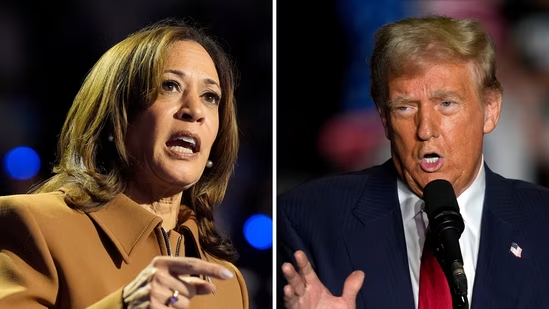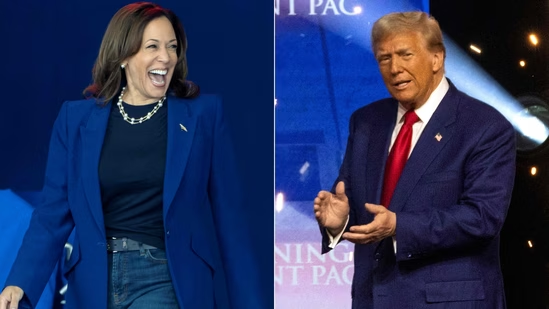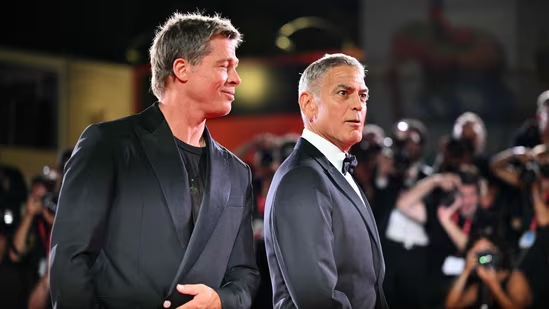Review: Blake Lively’s ‘It Ends With Us’ addresses important topics but devolves into a soap opera

Ryle Kincaid and Lily Bloom don’t exactly hit it off. He kicks a patio chair fiercely to make an announcement while standing on a rooftop in Boston. She’s up there attempting to accept the passing of her violent father. They discuss flirting, gun violence, and maraschino cherry. Something is strange about these two. However, there’s also a clear draw.
So starts the unsatisfactory film version of Colleen Hoover’s best-selling 2016 novel “It Ends With Us,” starring Blake Lively and attempting to strike a balance between a romantic comedy and a film about female empowerment while addressing the reality of domestic abuse. In the process, everyone suffers.
The film revolves around Lively’s character Lily, a florist, who becomes entangled in a convoluted romantic triangle involving her handsome high school boyfriend, Atlas, played with a charming hangdog quality by Brandon Sklenar, and the attractive neurosurgeon Ryle (directed by Justin Baldoni).
Red flags exist regarding Ryle, but they take years to come to light before they become apparent. The directors deserve praise for not making it simple to raise concerns about the possible abuser.
The aftermath of domestic abuse and how it detaches people who witness or endure it are the most potent themes in “It Ends With Us.” This ought to have been clarified or emphasized further.
Baldoni operates in the gray area between assertiveness and psychosis, masterfully balancing intimidation and seduction. In addition, he directs well, moving the story smoothly and summarizing scenes with ease, despite his penchant for overuse of musical montages.
With her adorable flower drawings and love of shabby chic, Lively flirts perilously close to being Manic Pixie Dream Girl here, but she comes around in the end. She can dazzle a room in a cut-out dress, but she also wears a lot of jewelry and flowers.
Christy Hall’s script features a few awful missteps (as someone once remarks, “This man runs through women like candy”) but does a great job of avoiding some of the strange passages in the novel. For example, Lily’s father’s burial is presented as a memory rather than as a strange rooftop reconstruction.
However, “It Ends With Us” drags on for more than two hours due to tangents and shoddy editing, including abrupt scene cuts that leave viewers guessing as to where they are.
We also have a ton of unanswered questions, such as how Lively’s character managed to get up on the roof of that opulent building in the first place. And what’s up with Jenny Slate, Lily’s closest friend who steals the show with her Valentino outfits and pocketbook that costs as much as a small car? Despite the obvious lack of necessity for a retail job, she works at the flower store, right?
And what’s up with the strange association with Carhartt? Look at the imitation logo that appears and vanishes from jumpsuits and jackets; it seems like an attempt to portray the wearers as real, working-class people, even if they are not.
I suppose the movie’s celebration of riches and extravagance—from a Mercedes to million-dollar homes and elegant dinner reservations—is an attempt to demonstrate that domestic abuse isn’t limited to factories and sports bars.
It’s funny because Lily obviously has a type: both of her beaus are strong, dark-haired men who adore her, prefer tight black T-shirts, and have stubble beards. It’s very difficult to tell them apart when they fight, which they do.
With Thom Yorke’s “Dawn Chorus,” Lewis Capaldi’s “Love the Hell Out of You,” and Brittany Howard’s “I Don’t” among the songs on the explosive soundtrack, Lively’s closest friend Taylor Swift is unquestionably there, lending her “My Tears Ricochet.”
Ryle is forewarned by Lily, “Don’t let me regret this,” before they eventually start dating. Of course she will. And it’s likely that a few other actors in this movie will as well.
Twitter @KennedyTwits is where you can find Mark Kennedy.
The Sony Pictures film “It Ends With Us,” which opens in cinemas on Friday, is classified PG-13 due to “domestic violence, sexual content, and some strong language.” 130 minutes of running time. A total of 1.5 stars out of 4.




